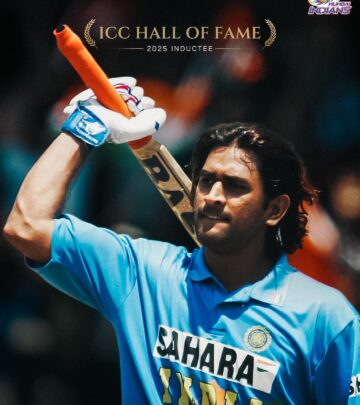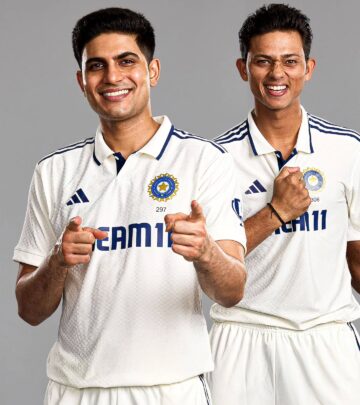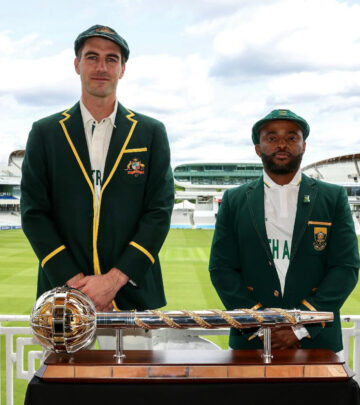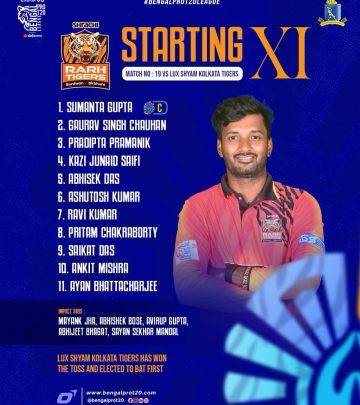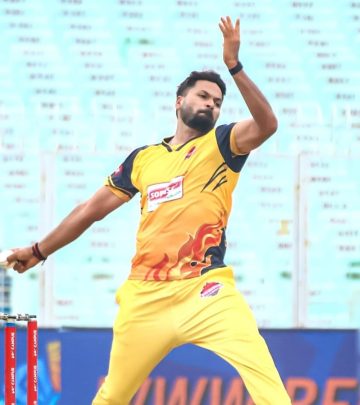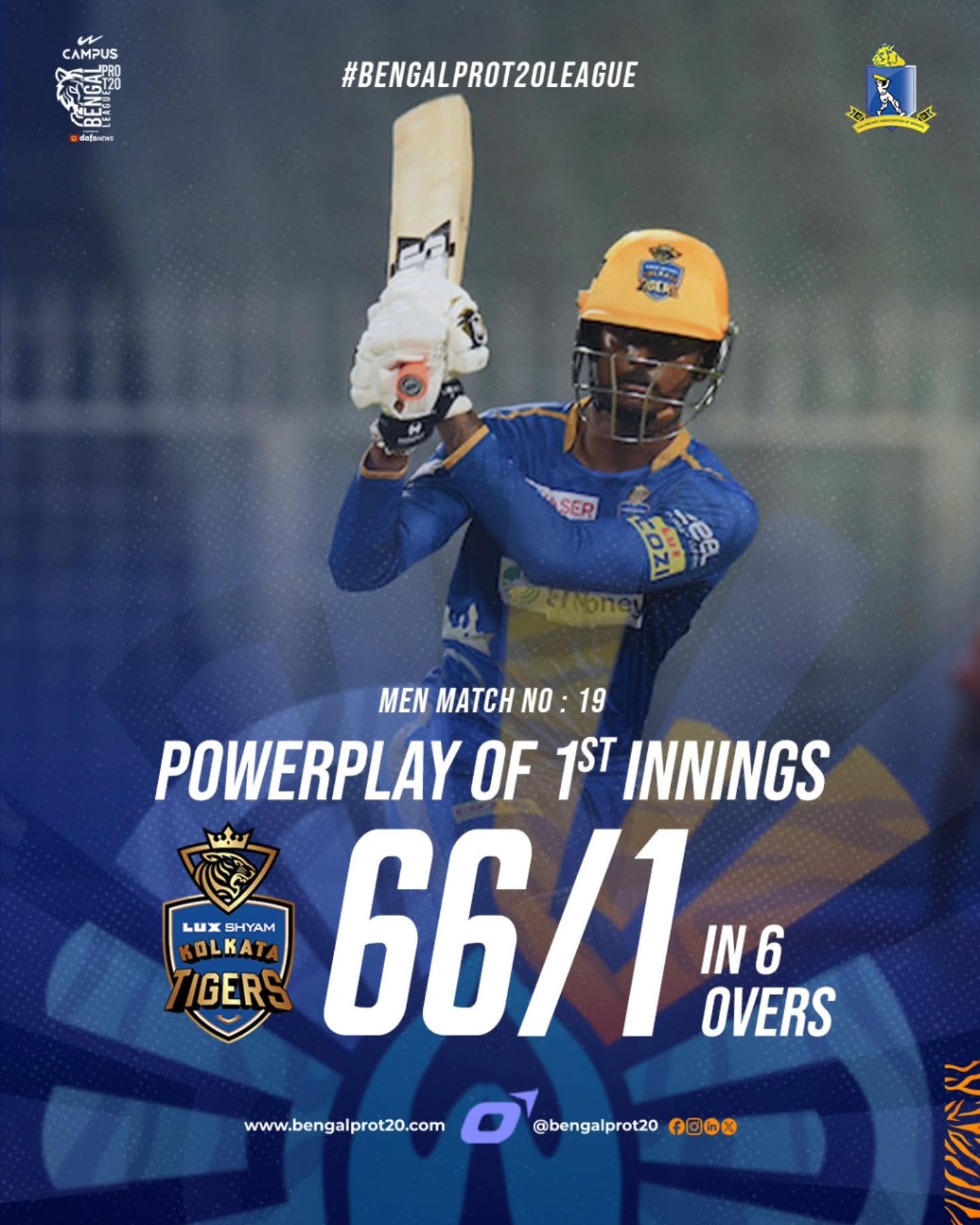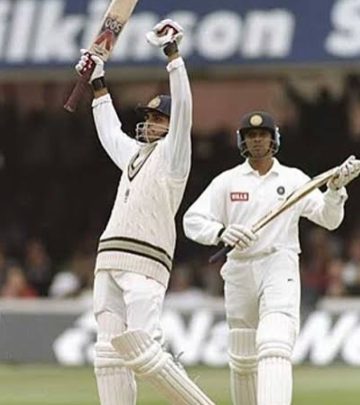AB De Villiers Critiques Test Championship Format
Villiers offers insights on SA cricket and demands a revamp of the World Test Championship.
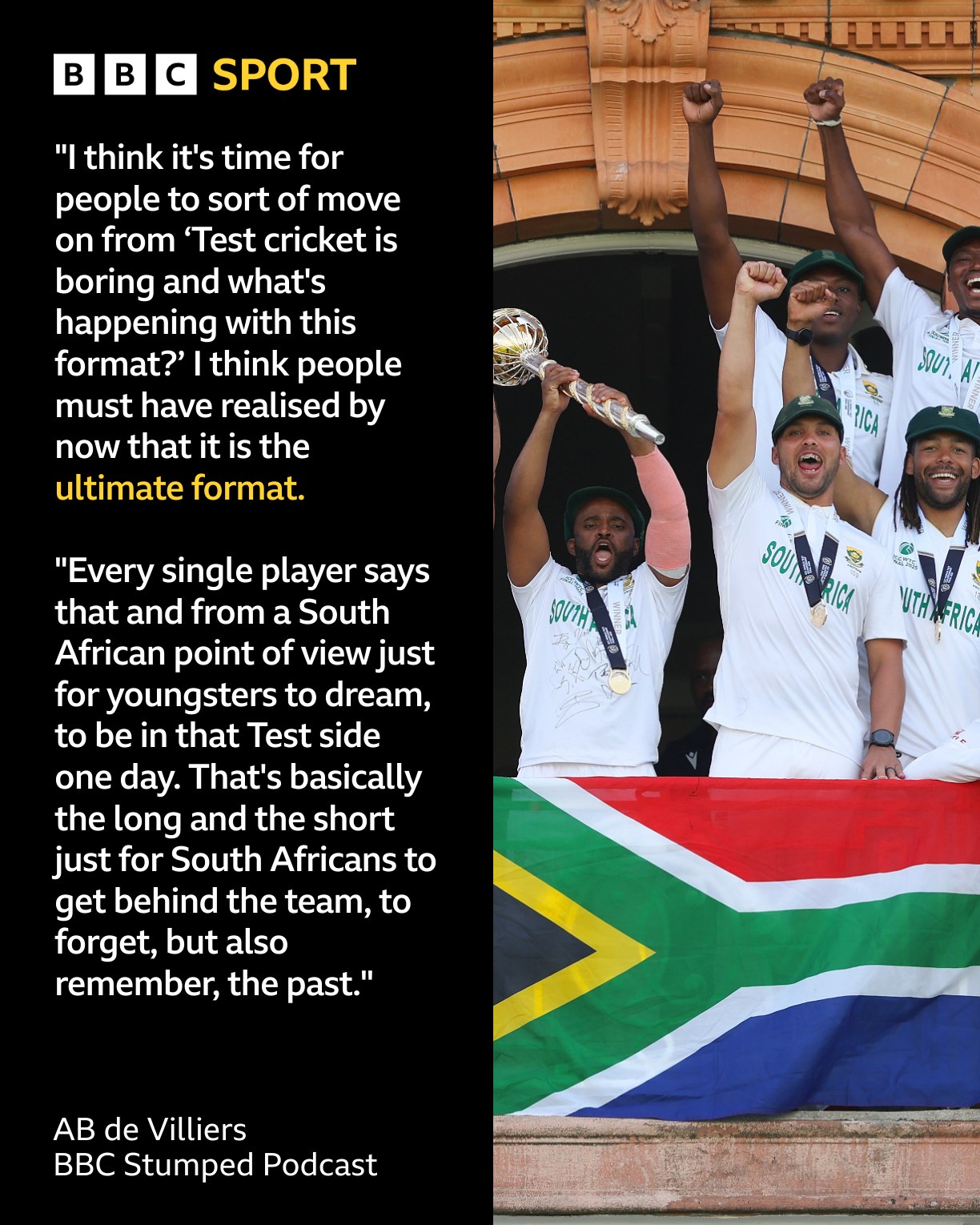
Image: Instagram
AB de Villiers, one of cricket’s most lauded legends, has delivered a thought‐provoking critique of the World Test Championship format in a recent BBC World Service interview for Stumped. Even in the wake of a Proteas victory, de Villiers expressed that the current structure does not fully capture the spirit and dynamism of modern Test cricket, calling for an innovative revamp.
World Test Championship Under The Lens
In the exclusive conversation with BBC Cricket, de Villiers discussed the evolution of Test cricket in an era marked by rapid changes in both strategy and player fitness. He noted that the format, while steeped in history, now faces challenges that leave teams like South Africa grappling with issues beyond the cricket field. The Proteas’ recent victory, although a morale booster, also underscored the shortcomings of a championship format that has seemingly grown stagnant over time.
The former South African captain and masterful batsman outlined that the current setup, although successful in many respects, needs significant tweaks to better reflect the competitive nature of the game. His insights come at a time when discussions around revamping the championship format have become more frequent among cricket pundits and enthusiasts alike. As noted on the BBC Sport app, and echoed across various social media channels, there is a growing sentiment that change is inevitable if Test cricket is to remain relevant and engaging.
Insightful Analysis And Historic Impact
During the interview, de Villiers emphasized that the World Test Championship is more than just a tournament—it is a litmus test for national cricketing prowess. His analysis revolved around how a more dynamic format could stimulate competitive spirit, possibly benefiting teams that have been historically overshadowed despite their talent and effort. This perspective resonates well with cricket fans, particularly in South Africa, where victories carry a deep emotional and historical weight.
Supported by visuals shared on the official BBC Cricket Instagram, one post notably captured the energy of the moment with the caption, “That win meant a lot to South Africa.” This image, showing jubilant celebrations and the raw emotion of victory, reinforces de Villiers’ point: the current format, while providing moments of glory, fails to encapsulate the full narrative of modern Test cricket. The Instagram post adds a colorful dimension to the discussion, connecting the dots between on-field success and the off-field desire for change.
A Call For A Reshaped Format
De Villiers was unequivocal about his stance: Shifting the format of the World Test Championship is essential for keeping the spirit of the game alive. He remarked that the evolution of cricket requires formats that not only reward consistency but also inspire teams to innovate in their gameplay. Although the interview did not include verbatim quotes, the essence of his message was clear—while tradition holds value, there is an urgent need to adapt to modern demands.
He further noted that change is not about discarding history but about embracing progress. By reflecting on past triumphs and current challenges, de Villiers argued that a reformed championship would better serve the cricketing ecosystem. This sentiment has resonated with various stakeholders in the cricket world and is prompting fans to envisage a future where the competition is as thrilling and inclusive as the best moments in cricket history.
Broadening The Discussion
In addition to de Villiers’ remarks, other voices in the cricket community have joined the conversation. Popular posts from BBC Cricket’s Instagram reflect a shared passion for the game. One image, titled in all caps as “SOUTH AFRICA HAVE DONE IT!”, celebrates the national team’s victory and hints at the broader context of competitiveness that defines the championship. Another post featuring Aiden Markram, who recently moved into his century during the championship final, emphasizes how individual performances can sway the fortunes of an entire nation. Such narratives contribute to a richer, more multifaceted understanding of what the World Test Championship represents in today’s cricketing landscape.
While the interview primarily highlights the need for change, it also pays homage to the sport’s enduring traditions. With the podcast episode promised soon on the BBC Sport app, de Villiers’ conversation is expected to further delve into these themes, offering fans a chance to engage in a deeper discussion about the future path of Test cricket.
Concluding his analysis, de Villiers stressed that the evolution of any sport is inevitable—highlighting that change, though challenging, is a necessary ingredient for sustained excellence. His perspective not only underscores the significance of the current Proteas victory but also sets the stage for the anticipated reforms in the World Test Championship format. As cricket fans and experts look ahead, the message is clear: embracing change is pivotal for maintaining the game’s competitive edge and global appeal.
The discussion has sparked widespread debates online, with many fans and analysts echoing similar sentiments about modernizing a historic tournament. With voices like de Villiers leading the way, the future of Test cricket appears poised for exciting transformations that honor its past while boldly stepping into a dynamic future.
Read full bio of Srijita De



